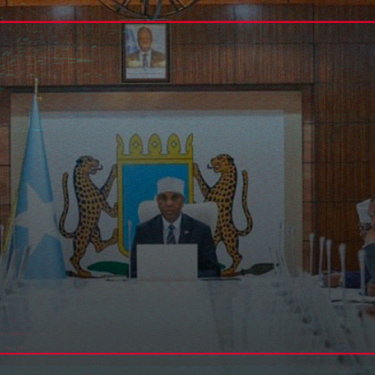Somalia appoints Media Council consisting mainly of government allies and only one journalist

Reporters Without Borders (RSF) is alarmed by the Somali government’s appointment of a Media Council consisting overwhelmingly of government allies instead of a majority of media representatives. The president must refuse to sign the decree confirming the appointments.
The nine-member Media Council unveiled by information minister Daud Aweis and approved by the council of ministers on 14 March constitutes a flagrant violation of the 2020 media law providing for such a body to regulate the media sector, including supervising journalists’ accreditation and media licences.
Until now, no Media Council had been set up, but the one finally appointed includes six information ministry advisers or former parliamentarians, a lawyer who is reportedly close to a member of the government, and only one journalist.
Under article 14 of the 2020 media law, the Media Council is supposed to be created by a clear and transparent process and to consist of three public media representatives, three representatives of the privately-owned media, and three members of civil society.
The law also says that the Media Council must not be exposed to political or governmental interference and that the choice of its members must take account of the opinions of local media organisations such as the National Union of Somali Journalists (NUSOJ), and civil society.
But neither NUSOJ nor civil society were consulted about the choice of council’s members, according to the information obtained by RSF, which tried without success to reach the information minister.
The decision by the council of ministers to appoint mainly government allies to make up the new Media Council is a flagrant violation of the law. We are alarmed by this decision, which, if approved by the president, would pose an additional danger to the media profession, whose situation is already extremely fragile. We call on President Hassan Sheikh Mohamud to refrain from signing this decree.
Somalia is one of Africa’s most dangerous countries for press freedom. In January, three journalists with privately-owned Maan Media TV were arrested and tortured by the security forces in Somaliland, a self-proclaimed independent republic in northwestern Somalia. In February, two foreign journalists were deported from Puntland, an autonomous region in the north-east of the country, to which they had gone to cover the crisis affecting Red Sea shipping.
